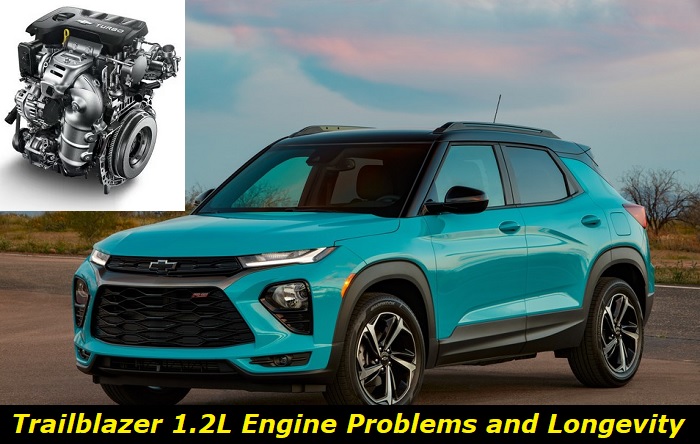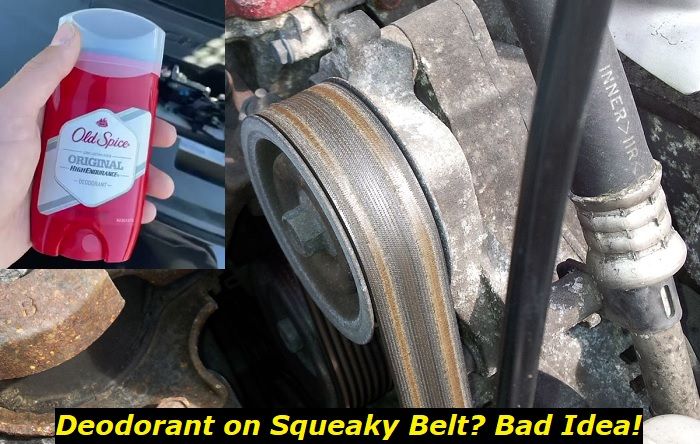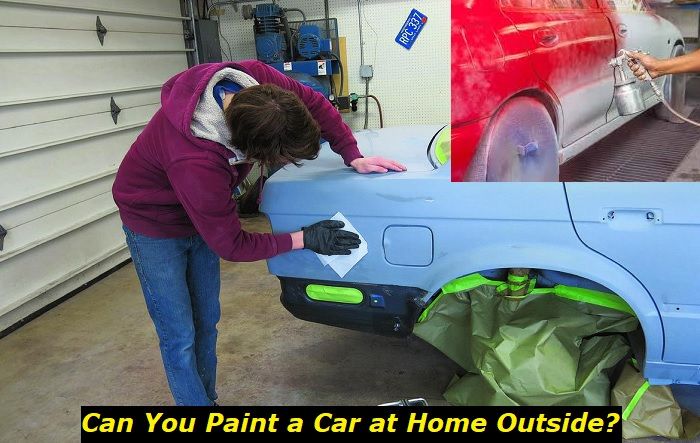If you are a fan of Chevy vehicles and want to get a new SUV, you are about to get your hand on one of the modern line-up vehicles. For those who don't have a lot of money to spare, the choice is pretty obvious - the new Trailblazer seems like a good purchase with a lot of good reviews and a cool design. But what about the engines that you will find under the hood of that vehicle?
Today, we'll be talking about the Chevy Trailblazer and its base 1.2-liter 3-cylinder turbocharged LIH engine. Is it that good? Or should you avoid it? We'll cover all aspects that people usually ask on forums without getting a proper answer. This is not the most popular Chevy engine and it's also relatively new. So what do we know about it?

Key features and my opinion about the engine
- Production years:2019-now
- Average lifespan of LIH:150,000-180,000 miles
- Fuel supply type:direct injection
- Power range:137 hp
- Fuel efficiency:good
- Engine block material:aluminum
- Engine reliability score:low
- The most common problems:vibrations, start-stop problems, EVAP system problems, carbon buildup on intake valves.
The Chevy Trailblazer 1.2L turbocharged engine - some key facts
So, the new Trailblazer is available now with two engine options. The base 1.2-liter version comes with FWD while the AWD trim features the more powerful 1.3-liter 3-cylinder turbo engine. Not a really significant difference. We think that GM engineers tried to use the 1.2-liter engine for all versions but when they drove their test car, they understood people wouldn't buy it. It's a joke, but how would you explain these two engines in the lineup?
Well, the 1.2-liter engine is more or less new. So, when people first time see these engines under the hood of their future car in the dealership, they wonder if this tiny mechanism is going to work for some years. And there is no direct answer to this. But we'll try to shed some light on it later in the article.
So, here's what you should know about the 1.2L LIH engine in the Chevy Trailblazer:
- the engine has 3 cylinders and a very modest displacement of 1.2 liters which is ridiculously little for an SUV, even a really compact one;
- the engine produces 137 horsepower at high RPM which is a lot for this displacement, but the power feels cool when you drive the Trailblazer;
- also, this engine provides you with 162 lb-ft of torque - it's also a lot for the displacement, but the vehicle goes really well;
- the construction of the engine is more or less the same as with the 1.3-liter turbo engine found under the hood of the AWD version of the Trailblazer;
- you will not love the sound of the engine when rotating it up to 4000-5000 RPM, it screams like crazy and still doesn't allow you to go really fast;
- also, towing is not possible at all, the engine is pretty weak and won't stand if you try to tow a trailer or another vehicle;
- the engine is equipped with the CVT whereas the 1.3-liter engine comes with a nine-speed automatic transmission;
- you may expect genius gas mileage, but it's just average with about 31 MPG on highways and 29 MPG in the city traffic.
The construction is pretty simple. The engine is new but the technologies had been known for a long time before the engine was made. We believe, GM took some European small-displacement engines and just equipped them with a turbocharger to provide you with more power. Right now, it's hard to say if the decision was really good.
As a driver, you shouldn't have a lot of problems with this engine. It's quite powerful and very good to drive. It delivers better-than-average gas mileage and doesn't bother you much with vibrations even when idling. But don't make premature conclusions. Just keep reading to know more.
What about the lifespan of the 1.2-liter 3-cylinder GM engine?
The Trailblazer base engine is not going to live more than you expect it to. It's not the most durable mechanism you've ever seen in your life. We believe the average lifespan should be about 120,000 miles given you maintain the engine right as the manufacturer recommends.
We are pretty sure that a lot of these engines will be deadly broken at 50-60 thousand miles because of poor oil, bad gasoline, and other problems. But actually, we still can't say that the engine is bad.
When you buy a small displacement engine, you are taking a risk. You pay less money but you may need to invest some more money when the engine dies. Are you OK with such a deal? Then you may go and buy the Trailblazer. If you are not ready to compromise quality and durability, then look for some other options in competitive models on the market.
What are the possible problems with the 1.2-liter Trailblazer engine?
So, we've analyzed forums and blogs but we've found little to no reports of bad problems. So, we've decided to speak with professional mechanics and here we've found a lot of interesting issues to write about.
Unfortunately, these engines are not trouble-free, and here's what you should consider:
1. Iced over intercoolers
If you are living in an area where winter temperatures are below zero, you should be ready to solve the problem of the iced intercooler. It may freeze and stop the turbocharger from working properly. The reason for this is not enough heat produced by some parts of the engine.
Even if you manage to start the engine after a severe night, you may also experience this problem after that. It means the best solution is to take your Trailblazer to a warm garage or parking area and wait for a couple of hours. Damage to the intercooler is also possible.
2. Power loss is more than possible
The engine is small but still powerful. The problem is that when something blocks the airflow, the engine may just die or work at half of its opportunities. It means that once some minor problem happens with the airflow, the engine may just die and not even start.
If you experience this, take your Trailblazer in for an inspection. Dealers know about this problem and will find the solution pretty quickly. One important thing is that the vehicle may require some expensive work at any mileage.
3. Turbocharger failure
We see that the turbochargers that GM uses in these 1.2L engines are not really good. They can fail much earlier than the engine will die. It means you will have to spend some money to get the engine back to life.
The turbocharger here is not really big or expensive. But it makes a lot of work, so the wear and tear may be quite bad. Anyway, repairing the turbo may be a very expensive task for you unless the vehicle is still under warranty.
4. Engine block problems
The block is made of aluminum which is OK. But it experiences a lot of pressure because getting 137 horsepower from 1.2 liters of displacement is not a joke. So, the wear of the cylinder block, pistons, piston rings, rod bearings, crank, and camshafts will be very intensive.
It means that no one can tell you for sure how many miles this engine will survive. It can fail at 50K miles because of poor oil service or just being overloaded.
5. Timing belt problems
We strongly recommend replacing the timing belt along with the entire timing kit every 40,000 miles for this engine. This is important because the broken belt will quite obviously mean that you need a new engine. Repairing this powerplant (this word sounds ironic when used for the 1.2L little guy) after head problems and piston cracks is just insanely expensive.
6. Turbocharger issues
Several serious cases of turbocharger problems have already been reported and we know that the higher the mileage of these SUVs, the more issues will be reported by the owners. The turbocharger requires low-viscosity oil, so when it's cold outside and the oil is pretty viscose, the turbo will not be lubricated well. This will lead to premature death. Of course, if you are living in Florida, this shouldn't bother you at all. But colder states will not affect the health of this engine for good.
What should you do to prolong the life of the 1.2L LIH turbo engine?
Well, you aren't likely to make this engine live longer than 120,000 miles. But even to drive it that long, you should know some rules. It's not that hard to follow the recommendations because they are all just simple TLC procedures.
Think about the following:
- oil and filter change service is required even more frequently than you read in the manual;
- only original oil with a certain viscosity will be OK;
- overheating is the worst thing you can expect, so avoid it at all costs;
- rotating this engine too much is not recommended, try to keep it under 3500 RPM at all times;
- avoid aggressive driving because this will kill the turbocharger much faster than you think;
- always have the car inspected once you notice some bad sounds or other deviations.
Be careful with this engine and service it regularly to let it go up to 120,000 miles. But don't expect that you will drive the Trailblazer longer than that without repairing or replacing the engine.
Final words
We know that a lot of people consider the Trailblazer as their new car. But you should read the article about the 1.2-liter 3-cylinder engine first. Also, we've written an article about the 1.3L engine and we can assure you that it has just the same problems.
If you are ready to invest some money in this car and will surely follow all the recommendations for servicing this vehicle, then you may consider buying it. But once your Trailblazer hits 100K miles, you should think about the new car because problems with the engine will come shortly after that.
About the authors
The CarAraC research team is composed of seasoned auto mechanics and automotive industry professionals, including individuals with advanced degrees and certifications in their field. Our team members boast prestigious credentials, reflecting their extensive knowledge and skills. These qualifications include: IMI: Institute of the Motor Industry, ASE-Certified Master Automobile Technicians; Coventry University, Graduate of MA in Automotive Journalism; Politecnico di Torino, Italy, MS Automotive Engineering; Ss. Cyril and Methodius University in Skopje, Mechanical University in Skopje; TOC Automotive College; DHA Suffa University, Department of Mechanical Engineering






Add comment